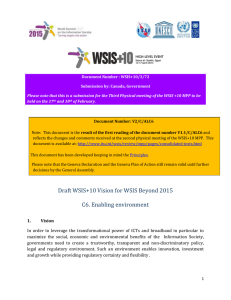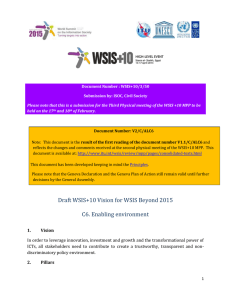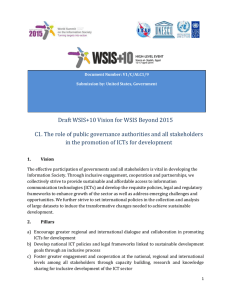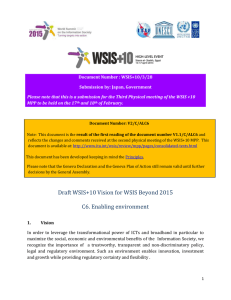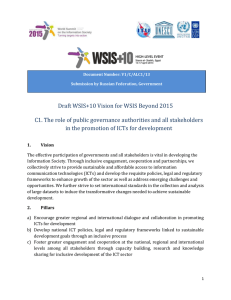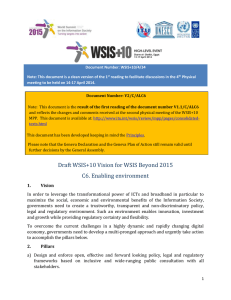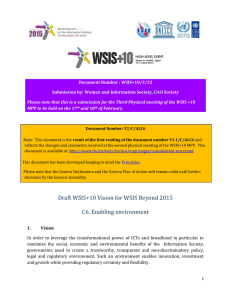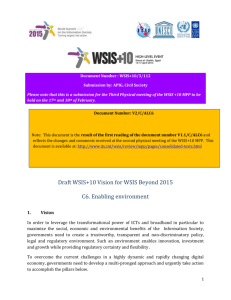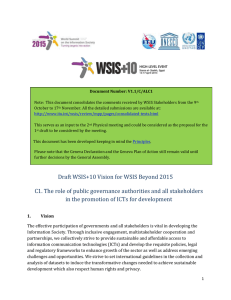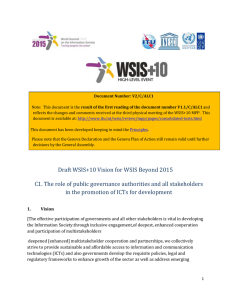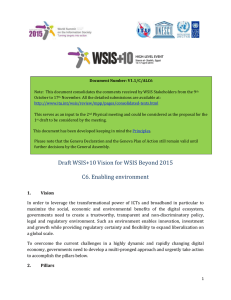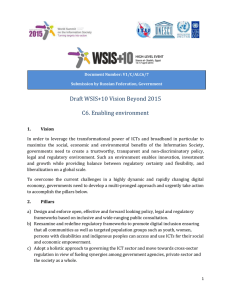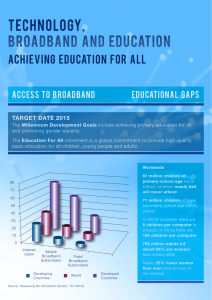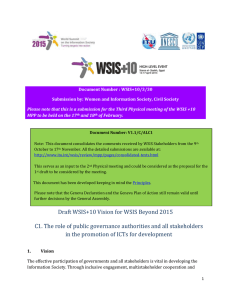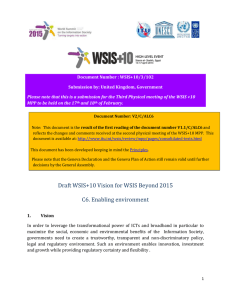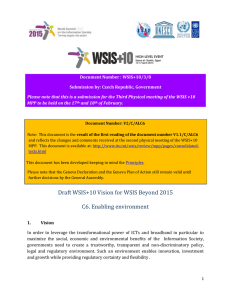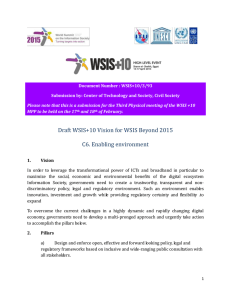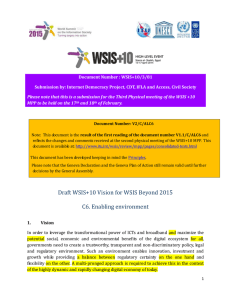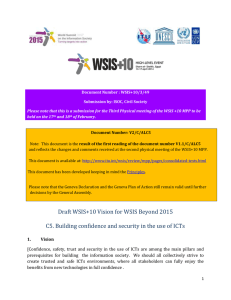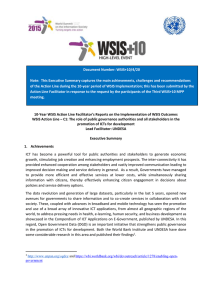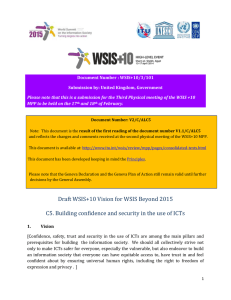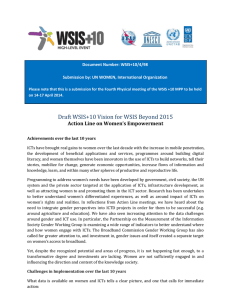Draft WSIS+10 Vision for WSIS Beyond 2015 C6. Enabling environment
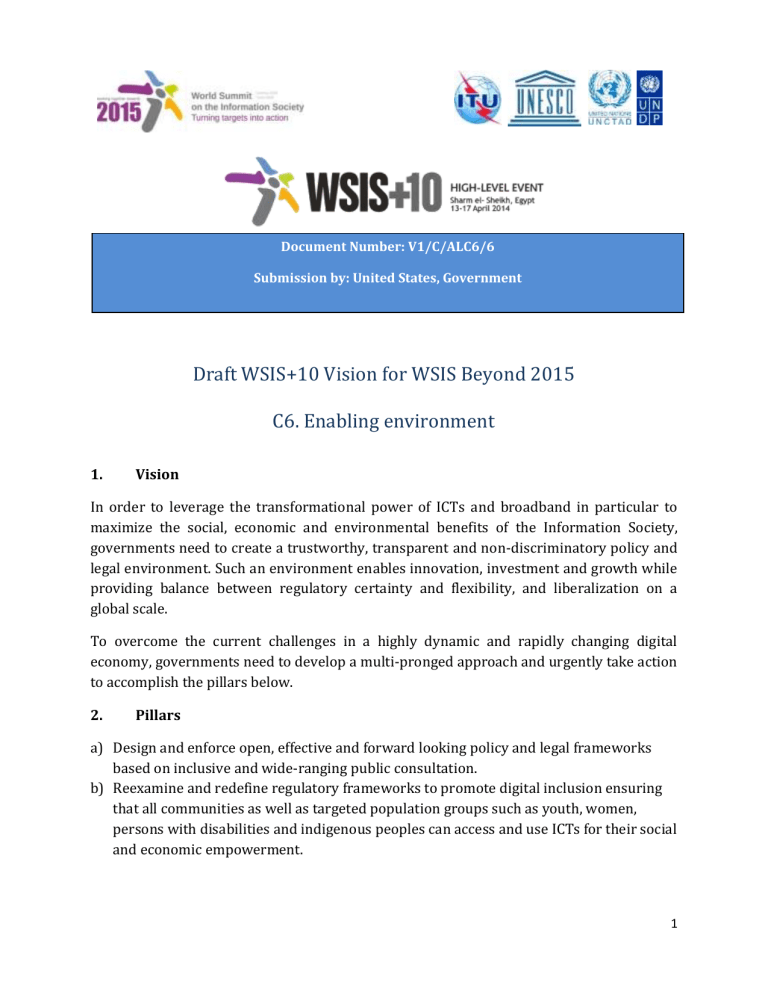
Document Number: V1/C/ALC6/6
Submission by: United States, Government
Draft WSIS+10 Vision for WSIS Beyond 2015
C6. Enabling environment
1. Vision
In order to leverage the transformational power of ICTs and broadband in particular to maximize the social, economic and environmental benefits of the Information Society, governments need to create a trustworthy, transparent and non-discriminatory policy and legal environment. Such an environment enables innovation, investment and growth while providing balance between regulatory certainty and flexibility, and liberalization on a global scale.
To overcome the current challenges in a highly dynamic and rapidly changing digital economy, governments need to develop a multi-pronged approach and urgently take action to accomplish the pillars below.
2. Pillars a) Design and enforce open, effective and forward looking policy and legal frameworks based on inclusive and wide-ranging public consultation. b) Reexamine and redefine regulatory frameworks to promote digital inclusion ensuring that all communities as well as targeted population groups such as youth, women, persons with disabilities and indigenous peoples can access and use ICTs for their social and economic empowerment.
1
c) Adopt a holistic approach to governing the ICT sector and move towards cross-sector regulation in view of fueling synergies among government agencies, private sector and the society as a whole. d) Enact a consistent and overarching ICT and/or broadband policy to foster broadband development across all sectors and drive digital inclusion of all. e) Lift all regulatory barriers to entry in broadband markets, and increase competition in all networks, moving towards lighter and simplified regulation while promoting innovation and entrepreneurship. f) Recognizing the economic potential of ICTs for Small and Medium-Sized Enterprises
(SMEs), contribute to increasing their competitiveness by streamlining administrative procedures, facilitating their access to capital, reducing the cost of doing business and enhancing their capacity to participate in ICT-related projects. g) Encourage the development and adoption of appropriate national, regional and international technical and organizational standards that are required to address the concerns of various ICT providers and users. h) Adapt, adopt and enforce legal frameworks for ensuring confidence and security in the use of ICT for better governance (such as in the area of data protection, privacy, etc.) and enhance national capacities with this regard. a) Internet
2
